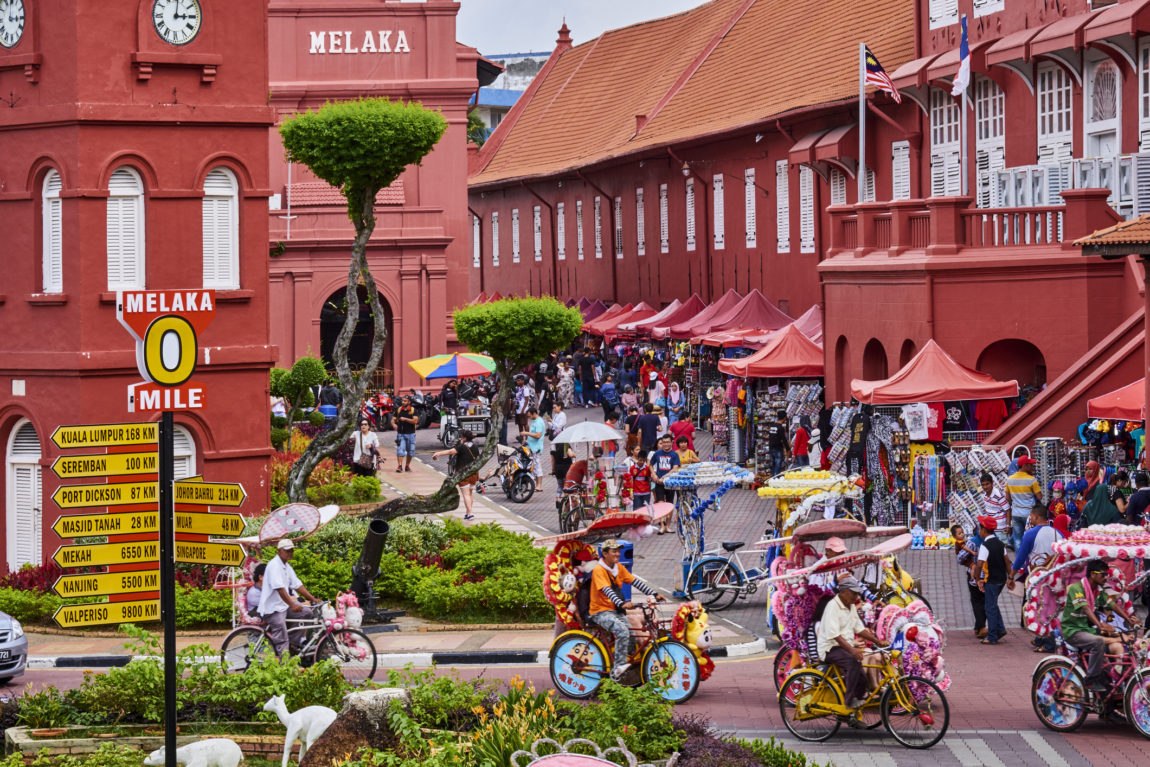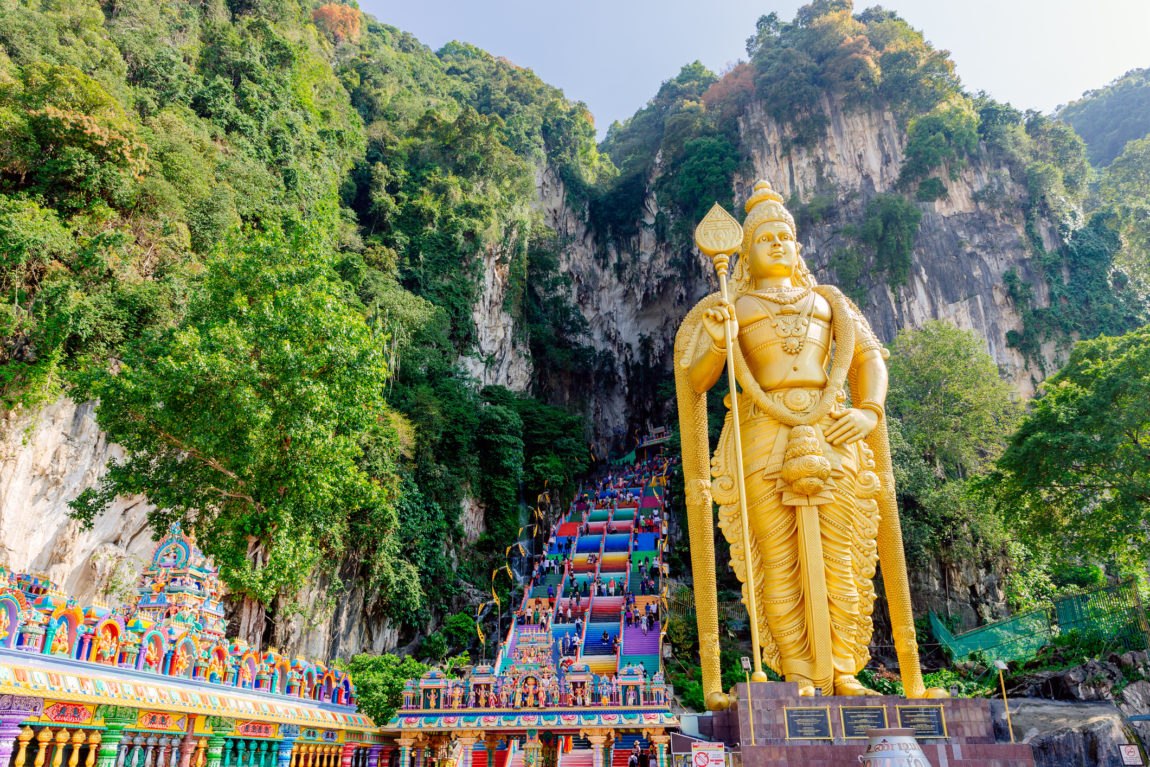Reading time: 5 minutes

With a vibrant mix of Malay, Chinese, Indian, and European influences, Malaysia is a true cultural melting pot, characterised by bustling cities and lush rainforest. Spread across the Malay peninsula and the island of Borneo, there is plenty to see and do in Malaysia, from sampling delicious local dishes and sightseeing in Kuala Lumpur, to venturing into the tea plantations at Cameron Highlands.
However, as unique as Malaysia's beautiful countryside and culture are, so are some of its laws. While you're holidaying in Malaysia, bear in mind that you are subject to local law during your time there, and that you won't be let off scot-free just because you're only visiting.
 Photo credit Getty/Tuul & Bruno Morandi
Photo credit Getty/Tuul & Bruno Morandi
Respecting religion in Malaysia
While Malaysia is home to numerous cultures, it remains a predominantly Muslim country, with an estimated 63 per cent of the population practising Islam.
Malaysia has two parallel justice systems – Sharia laws and secular laws. Certain aspects of Sharia law are enforced across the country, with the states of Kelantan and Terengganu advocating for and often imposing stricter interpretations of Islamic law. Recently, more than a dozen laws enacted by the government of Kelantan were declared unconstitutional.
Sharia law only applies to Muslims, but it can also encompass Muslims visiting from Australia.
As a visitor to Malaysia, you're expected to respect local traditions, religion, and customs, as well as keeping your style dress and behaviour conservative when appropriate. In general, knees, shoulders, and cleavage should be covered, especially outside large cities, and women will need to wear a headscarf when visiting a mosque.
If in doubt, research your specific destination ahead of time, or ask a local. If you are visiting during Ramadan, ensure you are sensitive to those who are fasting by avoiding eating, drinking, or smoking in public.
Public indecency laws
Bearing in mind the more conservative nature of Islamic countries, you can find yourself in trouble for indecent exposure in Malaysia. Public nudity is considered a form of indecent exposure. Wearing “indecent” clothes can be construed as an obscene act, as was the case with three foreign men who caused a disturbance with their attire at a Hash House Harriers running event in 2024. Making out with your significant other in public can also considered an obscene act. Public indecency carries a punishment of up to three months in prison, a fine, or both.
 Photo credit Getty/Hoiseung Jung / EyeEm
Photo credit Getty/Hoiseung Jung / EyeEm
In 2016, a group of Australian tourists were arrested for stripping down to skimpy swimwear emblazoned with the Malaysian flag at the F1 Grand Prix. Christened 'the budgy nine', the enthusiastic race fans spent four days in detention before pleading guilty to charges of public nuisance. While the nine were released with a warning, the case is an important reminder of the need to respect local culture while in Malaysia.
Drug laws in Malaysia
Drug laws are incredibly strict in Malaysia, as in accordance with the Dangerous Drugs Act 1952. Use or possession of drugs including heroin, morphine, opium, cocaine, and cannabis can result in punishments from whipping to imprisonment. And while Malaysia abolished its mandatory death penalty for drug trafficking in 2023, judges can still choose to impose capital punishment.
If you are bringing medication into Malaysia, you may need a letter from your doctor. For more information, contact the High Commission of Malaysia in Australia.
LGBTQI travellers and cross-dressing
Cross-dressing is prohibited under Sharia law, and homosexual acts are criminalized by both Federal and Sharia law, with punishments including caning and imprisonment of up to 20 years. While LGBTQI travellers are unlikely to encounter issues, it’s still advisable behave conservatively – public displays of affection are often frowned upon for any couples, in spite of sexual orientation.
Carrying identification
Malaysian law requires that you carry photo identification, such as your passport, with you at all times. If you are stopped by authorities and don’t have ID on you, you might be detained until you can provide it.
Since you need to keep your passport on you, be sure to keep it safe with a money belt or a zipped inside pocket. And it’s wise to keep a photocopy of your passport in your hotel safe or some other secure place in case your actual passport is lost or stolen.
 Photo credit Getty/Alexander Spatari
Photo credit Getty/Alexander Spatari
No dual citizenship
Malaysia does not recognize dual citizenship. If you have dual passports, always travel on your Australian passport and use that same passport every time you enter or exit. If you are a dual Australia-Malaysia citizen and local authorities discover this, you may be required to renounce one of your citizenships.
Unusual laws in Malaysia
As part of the penal code, the singing of obscene songs in public to the annoyance of others is illegal (294). Under the 'Mischief' section of the code, if you destroy property belonging to others (425), you can be punished with jail time and/or a fine. Examples of mischief given in the code include:
- bringing water into an ice-house belonging to another person, causing the house to melt
- throwing someone else's ring into a river
- by shooting a horse that you co-own with another person
- bringing cattle into someone else's field, knowing that the cattle will cause damage to the field.
The Minor Offences Act outlines some other behaviours to avoid:
- Spitting in public places or near to a public road
- Bathing on a public road
Travel insurance
We all know that the good times can take a slight detour when travelling. When the going gets tough, Travel Insurance Direct policies aim to do the heavy lifting and may assist with travel insurance cover such as travel insurance for Malaysia to help keep your trip moving in the right direction, so you can refocus on the fun.